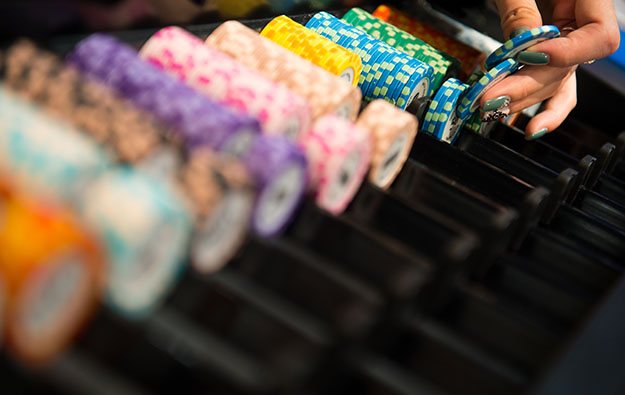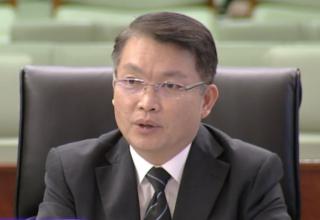Premium mass risk in UnionPay clampdown: analysts
Jun 07, 2018 Newsdesk Latest News, Macau, Top of the deck

The apparent crackdown on use of China UnionPay Ltd point-of-sale (POS) machines in pawnshops or jewellery shops based inside Macau casino premises could mark a governmental policy change regarding greater control of mass-market gambling to match that applied to high-stakes VIP play, says a memo from Japanese brokerage Nomura.
“There is disagreement among the operators on the government’s real intent, but it is clear that Macau is becoming more aggressive on a segment (mass) that could represent an estimated 10 percent to 20 percent of its liquidity,” wrote analysts Harry Curtis, Daniel Adam and Brian Dobson in a Wednesday note.
Rumours had been circulating that late last week, two banks – Industrial and Commercial Bank of China (Macau) Ltd and Bank of China Ltd Macau Branch – had ordered the removal of UnionPay point-of-sale devices from what analysts termed either “pawnshops” or “jewellery shops” located in Cotai casinos.
At least one brokerage – JP Morgan Securities (Asia) Ltd – has said the issue was also affecting pawnshops and jewellery shops inside casinos on Macau peninsula.
“Approximately 25 percent of premium mass may rely on UnionPay,” said a Thursday memo from brokerage Sanford C. Bernstein Ltd, referring to a segment of gambling customers that bet in high multiples but in cash rather than the credit extended to traditional high rollers in that market.
JP Morgan had said in a Wednesday circular that premium mass play might account for 24 percent of Macau operator revenue and 32 percent of their earnings before interest, taxation, depreciation and amortisation and was the segment “most susceptible” to being affected by the apparent policy move.
The Monetary Authority of Macao said in a statement on Wednesday evening it had not barred the city’s banks from installing UnionPay terminals in any “particular industries”.
But the city’s financial regulator added: “Banks are obliged to perform adequate due diligence on, and ongoing monitoring of, the merchants in order to prevent the abuse of POS machines [for] illegal activities.”
Beijing ‘message’
“We believe that Beijing has sent a message to the Macau government that it needs to beef up/enforce money transfer regulations,” suggested Nomura in its commentary issued after the financial regulator’s statement.
JP Morgan analysts DS Kim and Sean Zhuang said in a follow-up note on Wednesday, after the monetary authority’s announcement: “Given the vague language of the release, it’s still unclear whether banks will return POS machines to those affected, or whether the clampdown will actually escalate further (such as into pawnshops and jewellery shops outside casinos and/or illegal foreign exchange providers).”
They added: “Even if those shops get POS machines back, we think their ‘rules of engagement’ would have to change – probably not as openly as before when it comes to UnionPay cash-back services.”
The methods by which mainly mainland China consumers are said to use UnionPay services to convert their mainland currency-denominated funds into Hong Kong dollars – the currency in which overwhelmingly casino bets in Macau are denominated – is said by analysts to vary. One is the purchase, typically via UnionPay-linked bank cards, of high-value goods such as watches or jewellery, and then their return for a cash refund. Another is to gain access to unauthorised point-of-sale devices that mimic transactions occurring in China rather than Macau. The fee charged on mainland transactions via UnionPay is reportedly lower than on Macau transactions.
Wednesday’s monetary authority statement “implies that no pawnshops can provide cash advances, which could disrupt their business model,” suggested Nomura.
“The question is whether the crackdown is escalated to include all UnionPay terminals (both on and off premise),” added Messrs Curtis, Adam and Dobson.
Sanford Bernstein suggested in its Thursday note that “well over 100 pawnshops” were in operation in Macau.
The brokerage further noted that regulatory risks were “on the rise” in the context of the Macau gambling sector and its key feeder market mainland China.
“The significant risk is that there is a greater China policy implementation to greater control currency outflows,” stated Bernstein analysts Vitaly Umansky, Zhen Gong, Kelsey Zhu and Cathy Huang.
But Nomura flagged in its Wednesday memo that gamblers had over time proven “resourceful moving money in and out of the mainland”.
“In December 2015 new procedures were put in place requiring pawn shops/merchants to verify identities of [mainland] UnionPay cardholders via real-time monitoring systems, and in December 2016 ATM withdrawal limits were cut in half from MOP10,000 per day (US$1,250) to MOP5,000 per day (US$625). These measures had no adverse effect on underlying demand,” said the Nomura analysts.
Related articles
-
 Analysts see long-term Aristocrat...
Analysts see long-term Aristocrat...Nov 14, 2024
-
 Grand Lisboa to tap ex-junket space as...
Grand Lisboa to tap ex-junket space as...Nov 13, 2024
More news
-
 Venetian Macao’s arena revamp...
Venetian Macao’s arena revamp...Nov 25, 2024
-
 DigiPlus tags US$11mln for initial...
DigiPlus tags US$11mln for initial...Nov 25, 2024
Latest News
Nov 25, 2024
The Venetian Arena – the revamped and rebranded concert and event venue at the Venetian Macao casino resort – features VIP suites and supporting amenities. They were revealed on Monday by the...Sign up to our FREE Newsletter
 (Click here for more)
(Click here for more)
Pick of the Day
US$829.3 million
Fiscal revenue from taxes on gaming collected in October by the Macau government
Most Popular
 Macau to get 36mln visitors in 2025: Secretary Lei November 21, 2024
Macau to get 36mln visitors in 2025: Secretary Lei November 21, 2024  Gaming technology firm IGT reports hacking incident November 21, 2024
Gaming technology firm IGT reports hacking incident November 21, 2024  Wynn Al Marjan building structure 55pct complete: promoter November 22, 2024
Wynn Al Marjan building structure 55pct complete: promoter November 22, 2024  David Chow steps in for mother as Macau Legend director December 10, 2018
David Chow steps in for mother as Macau Legend director December 10, 2018









